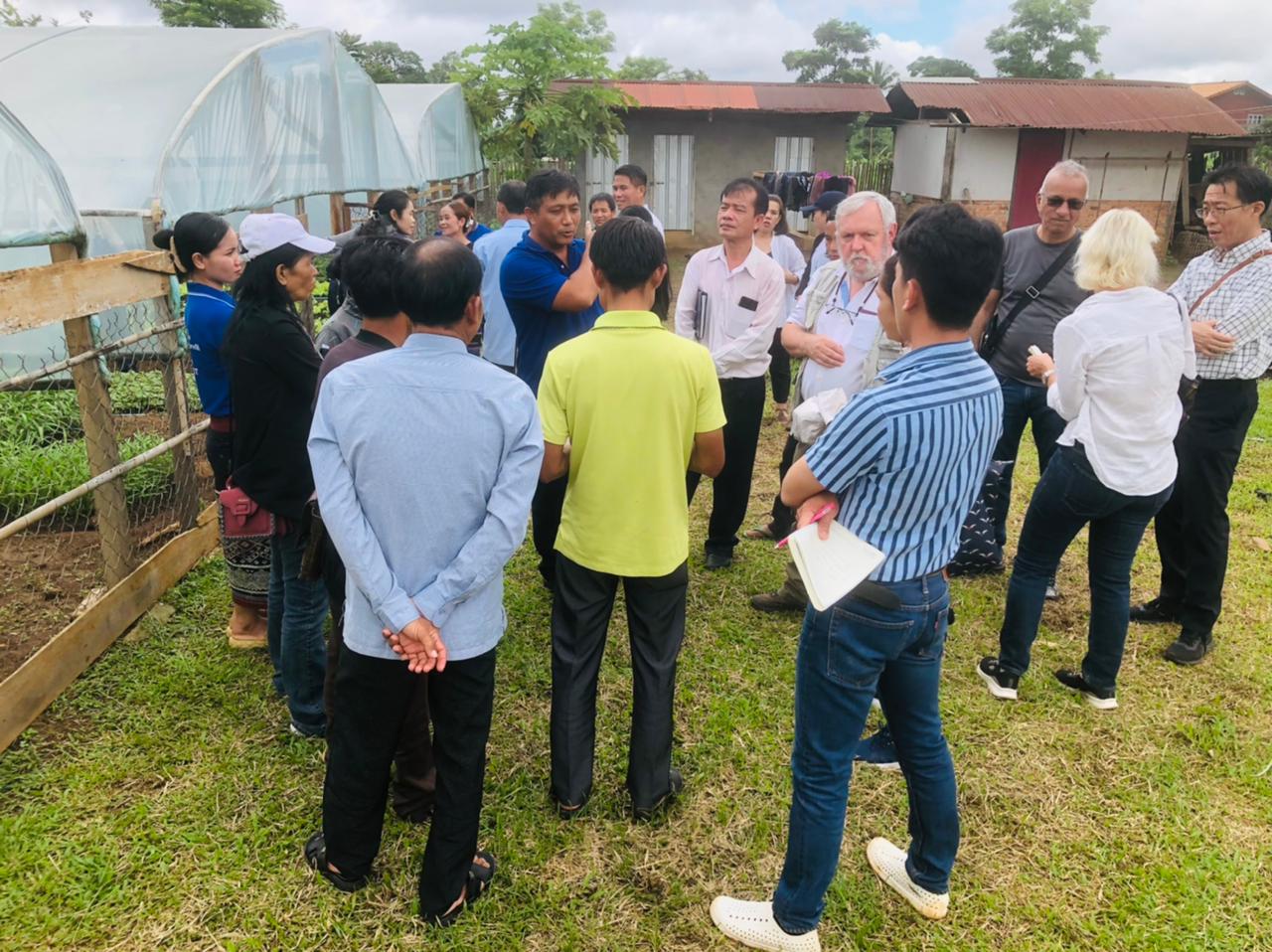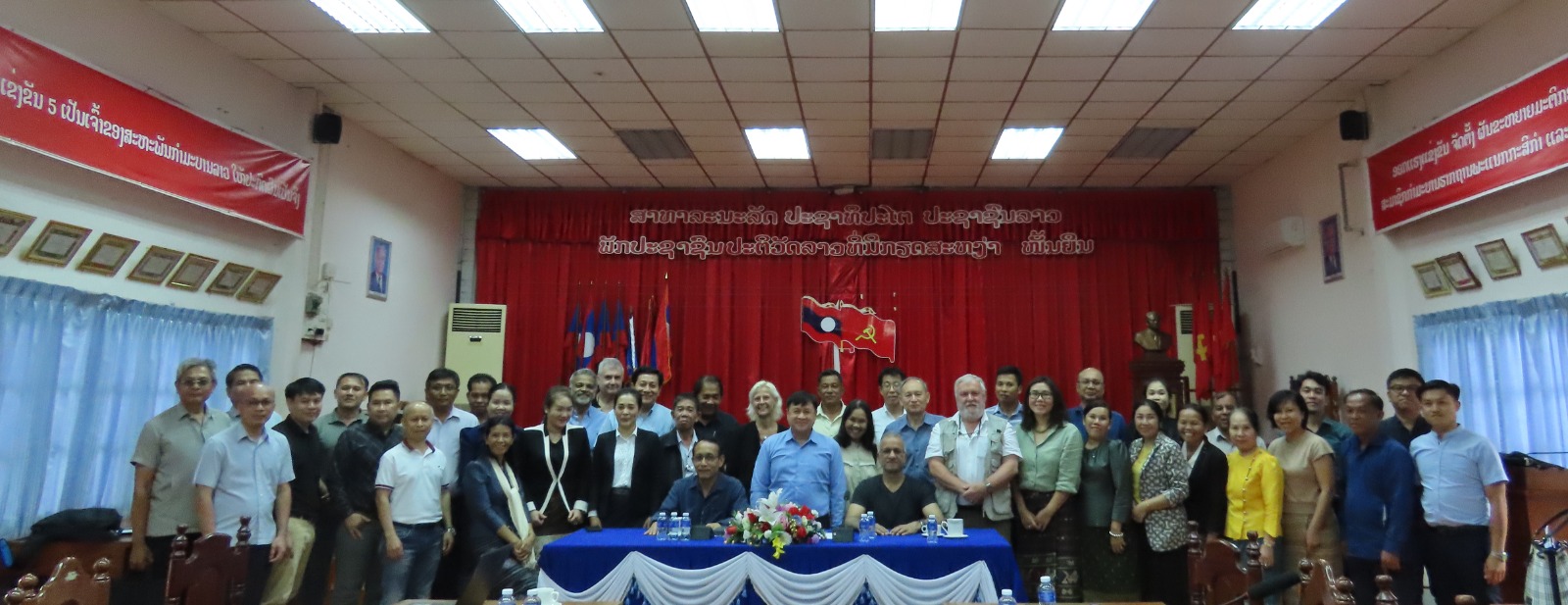Handover Ceremony of Smallholder Financing Scheme (SFS) under Climate-Friendly Agribusiness Value Chains Sector Project (CFAVC) to 11 Agriculture Production Groups in 6 Districts of Savannakhet, total amount of LAK5,708,118,000 (USD259,000)
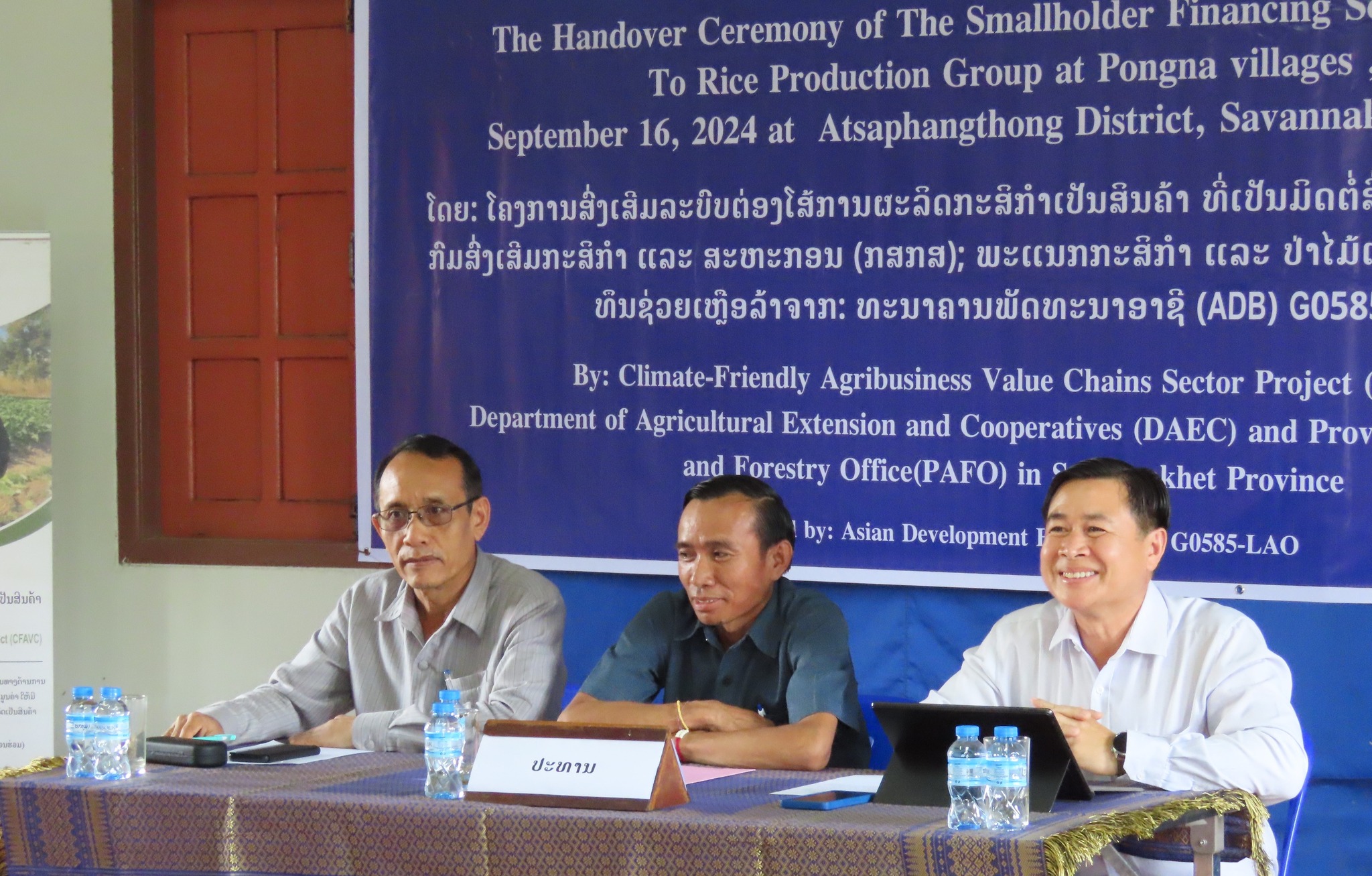
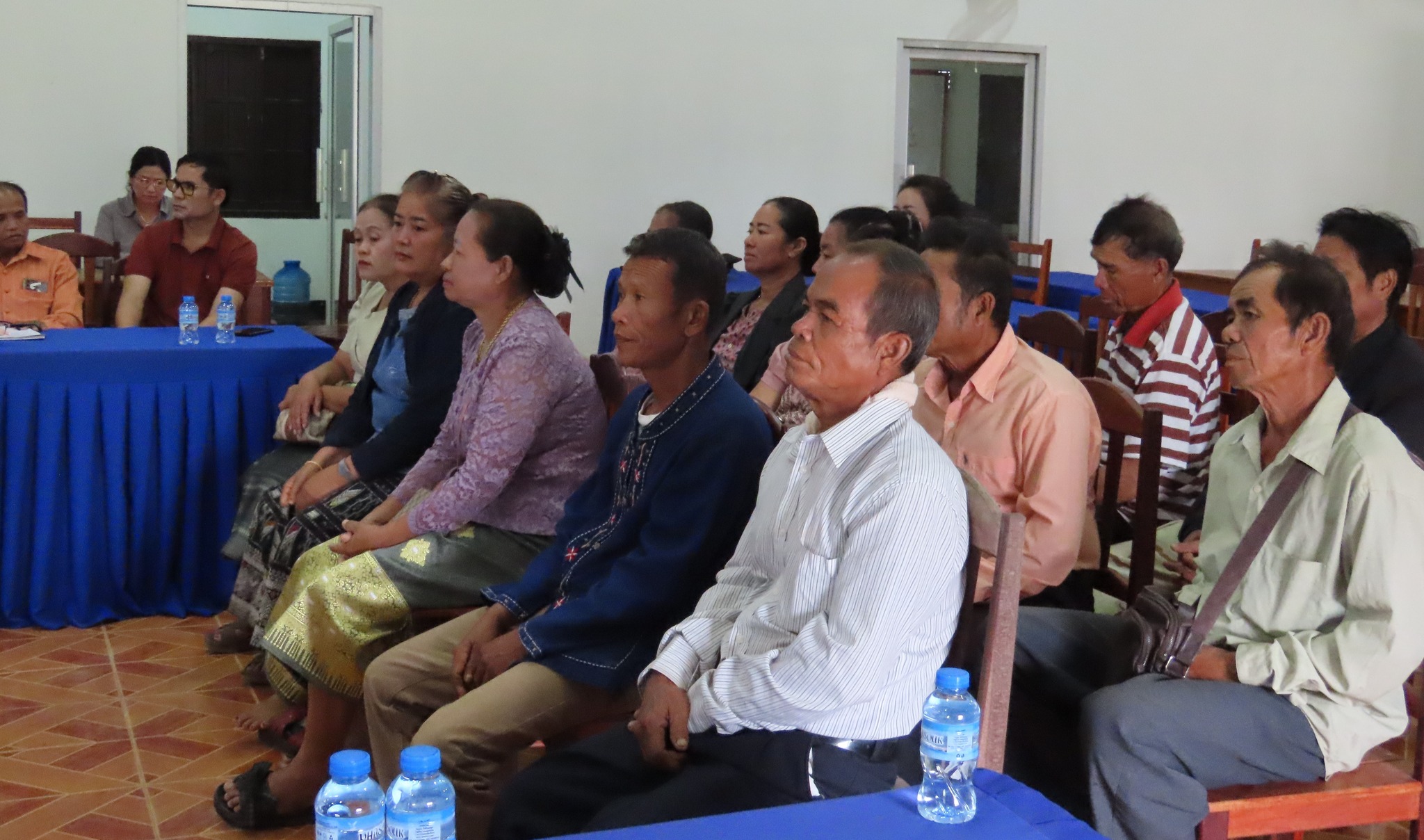
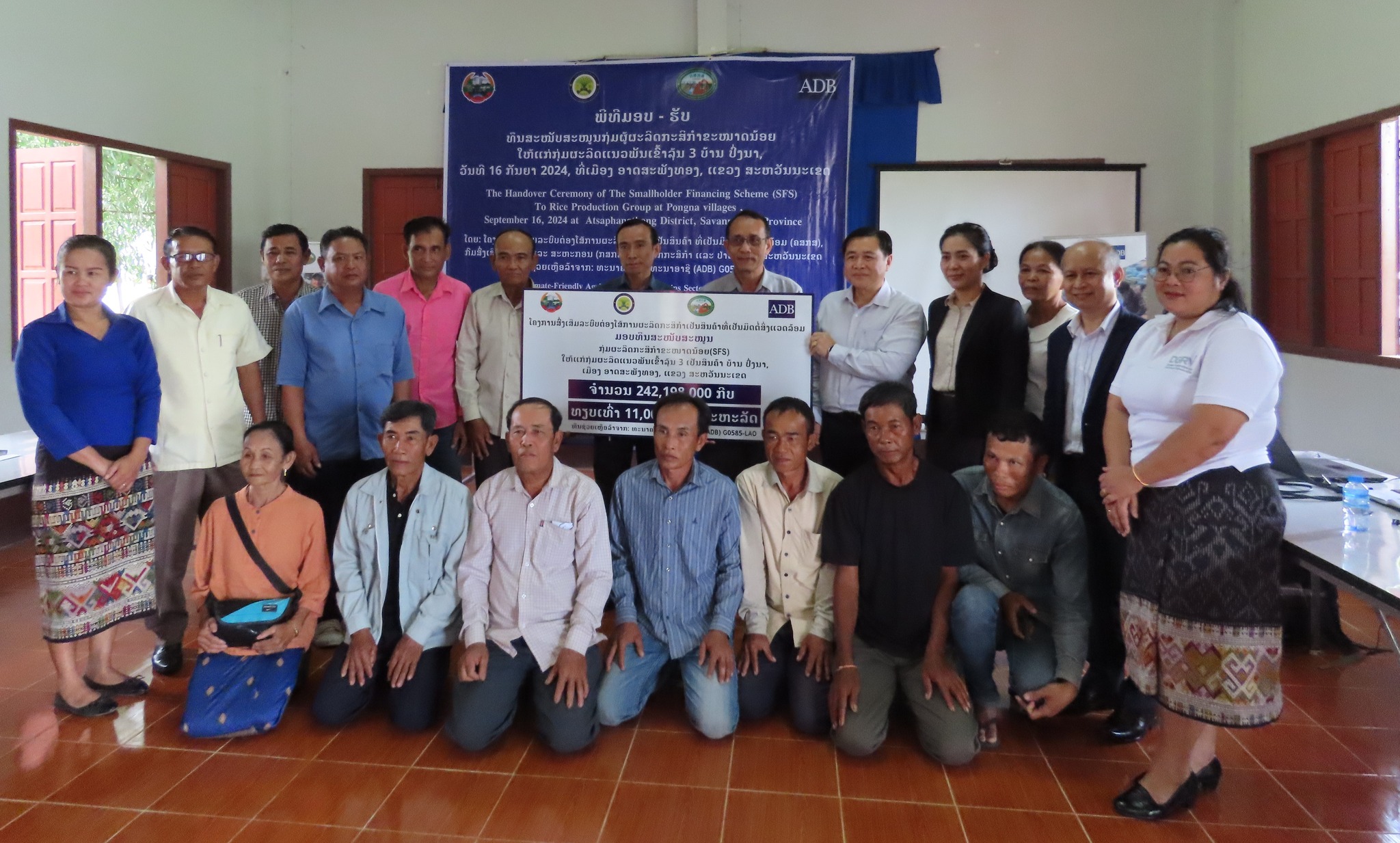
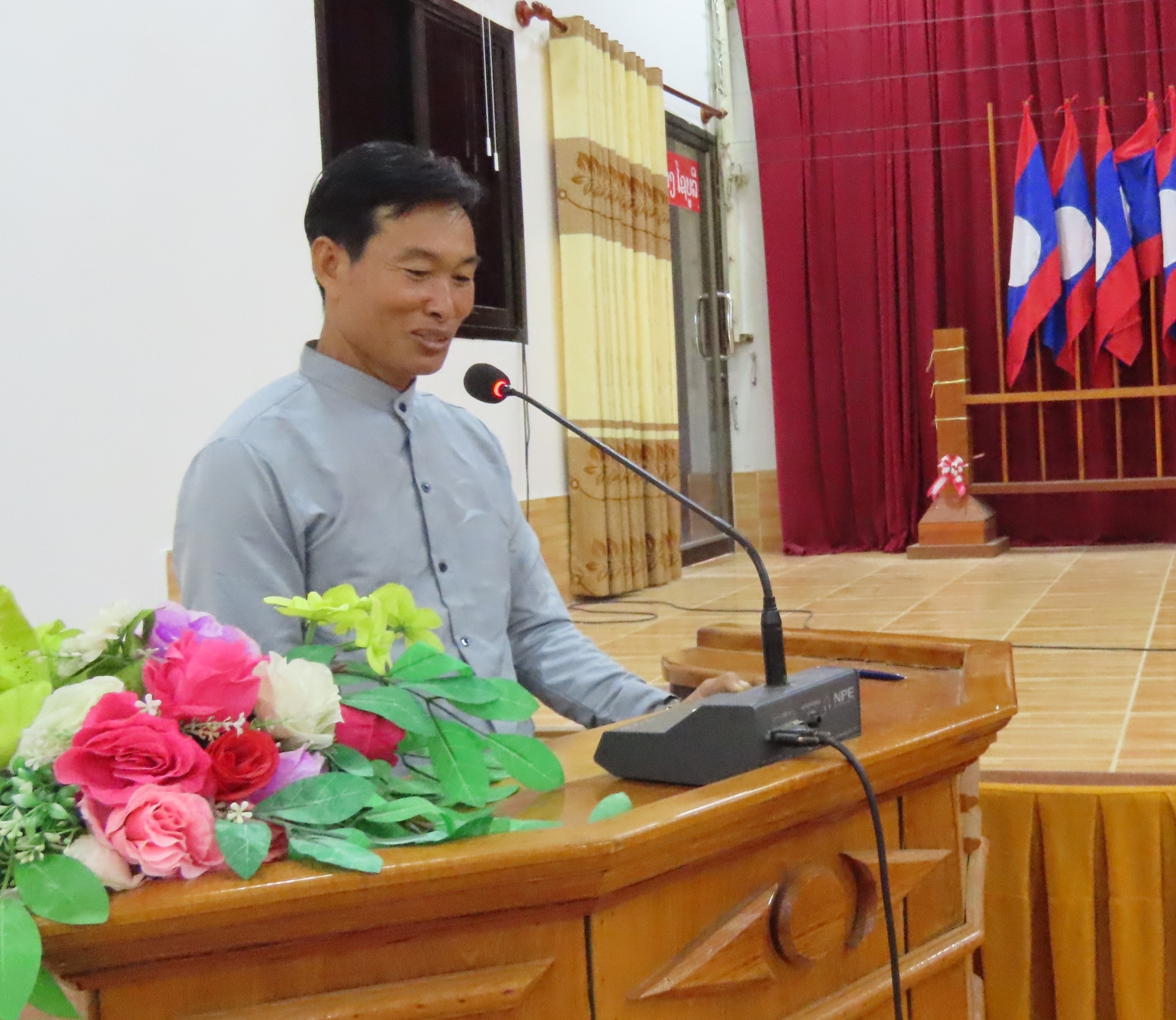
Handover Ceremony of Smallholder Financing Scheme (SFS) under Climate-Friendly Agribusiness Value Chains Sector Project (CFAVC) to 11 Agriculture Production Groups in 6 Districts of Savannakhet, total amount of LAK5,708,118,000 (USD259,000)




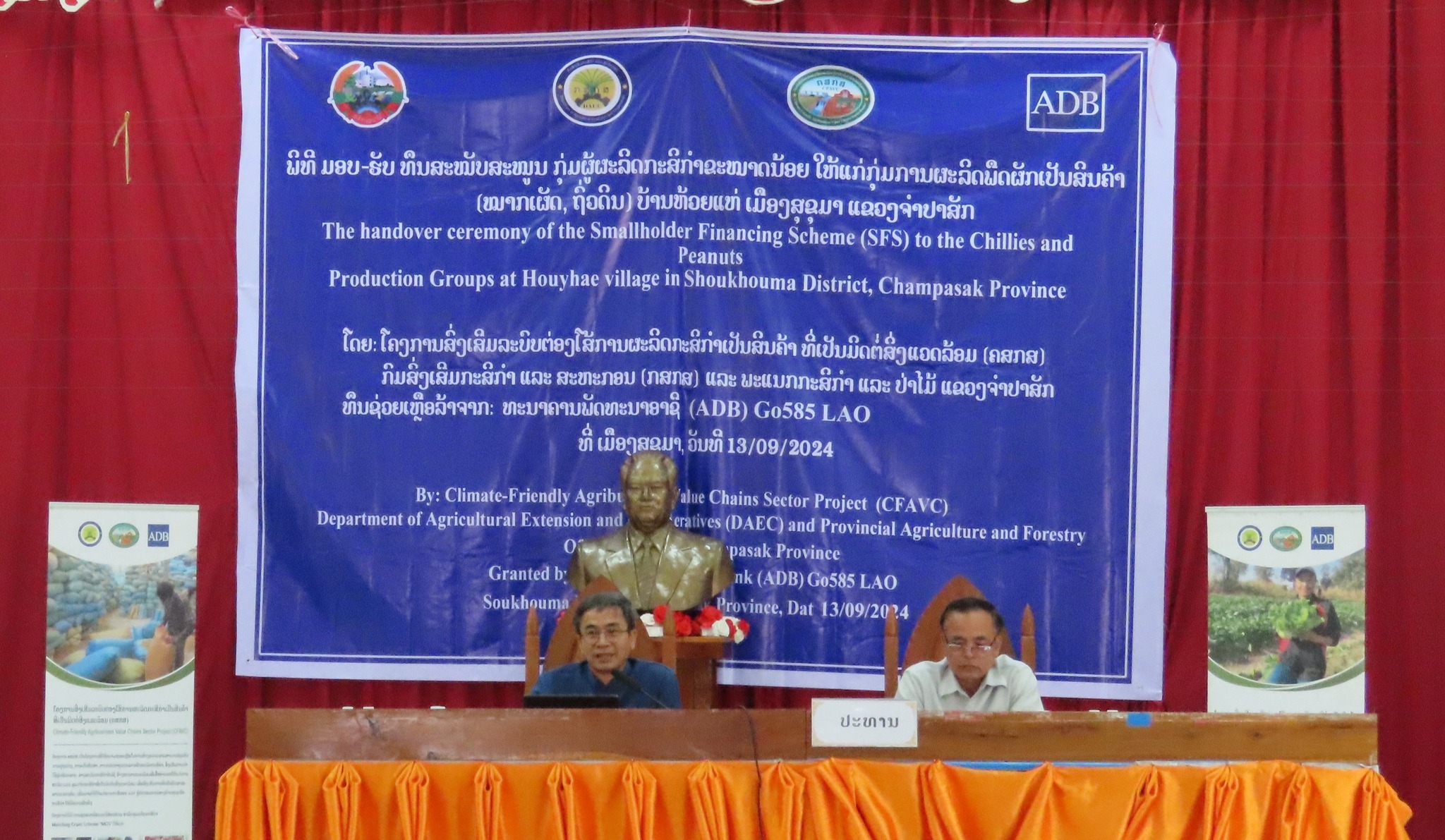
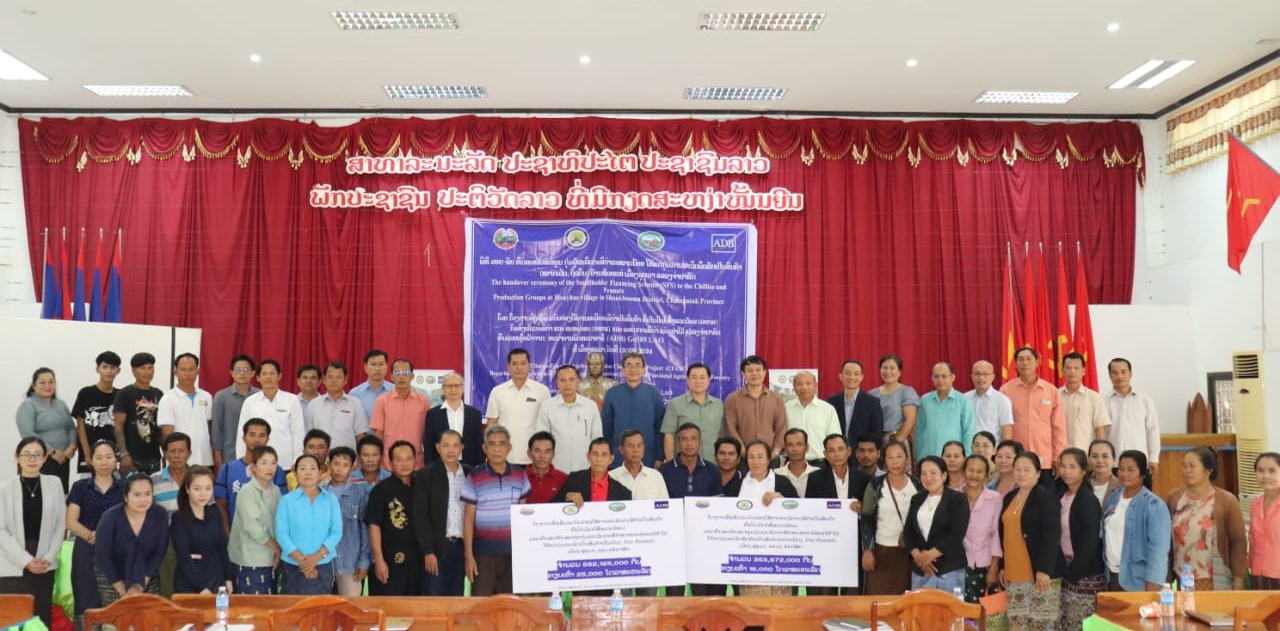
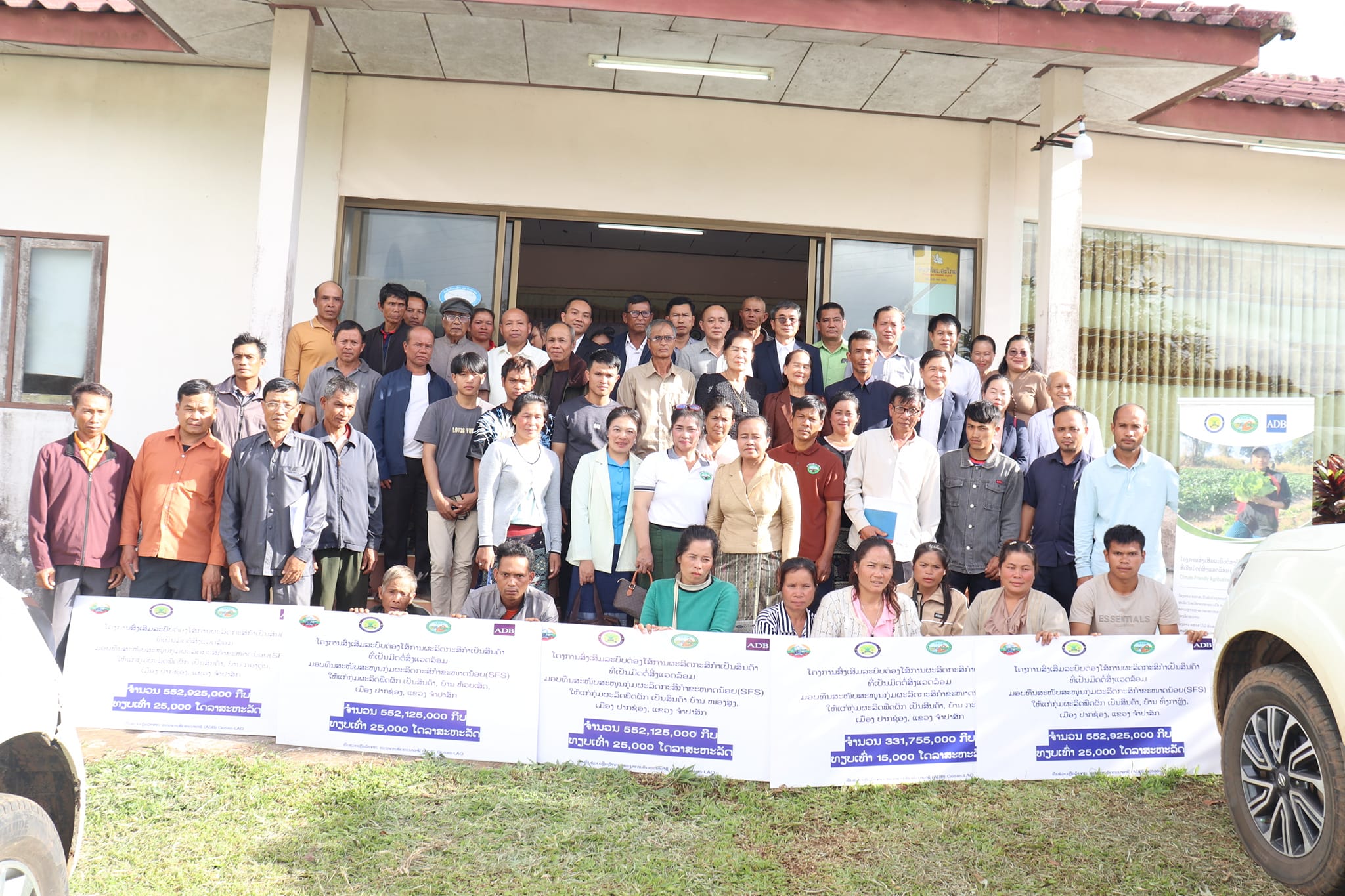
From August 20-24, 2024, the Climate Friendly Agriculture Value Chain Project (CFAVC) led a delegation of organic vegetable growers from Vientiane Capital, including participants from Xaysetha District, Sikottabong District, and Naxaithong District. The group consisted of 41 men and 12 women, representing 29% female participation.
The delegation visited Nahat Village in Khamkeud District, Borikhamxay Province, to learn about organic farming techniques. The focus was on sharing knowledge and best practices in organic vegetable farming, especially techniques suitable for rainy-season cultivation. Nahat Village is home to a well-established vegetable growers group comprising 40 families, of which 15 practice organic farming, while 25 focus on clean agriculture. The group collectively cultivates 3.5 hectares of land, producing a variety of crops such as pumpkin, onion, lettuce, parsley, spinach, and beans. The primary mode of distribution for these products is through middlemen.
During the visit, key factors for successful market integration were identified. These include the marketing mix (product, price, promotion, and place), post-harvest management (harvesting, sorting, storage, cold chain logistics, packaging, and transportation), and the structure of the marketing chain (producer, local buyers, wholesale markets, retail markets, and community markets). The marketing process typically follows one of three channels: producer-wholesaler-retailer-consumer, producer-retailer-consumer, or producer-consumer.
The insights gained from this field visit are expected to strengthen the vegetable production groups in Borikhamxay Province. By applying the lessons learned, these groups aim to enhance their production processes, thereby contributing to the development of a more robust and sustainable agricultural sector in the region.
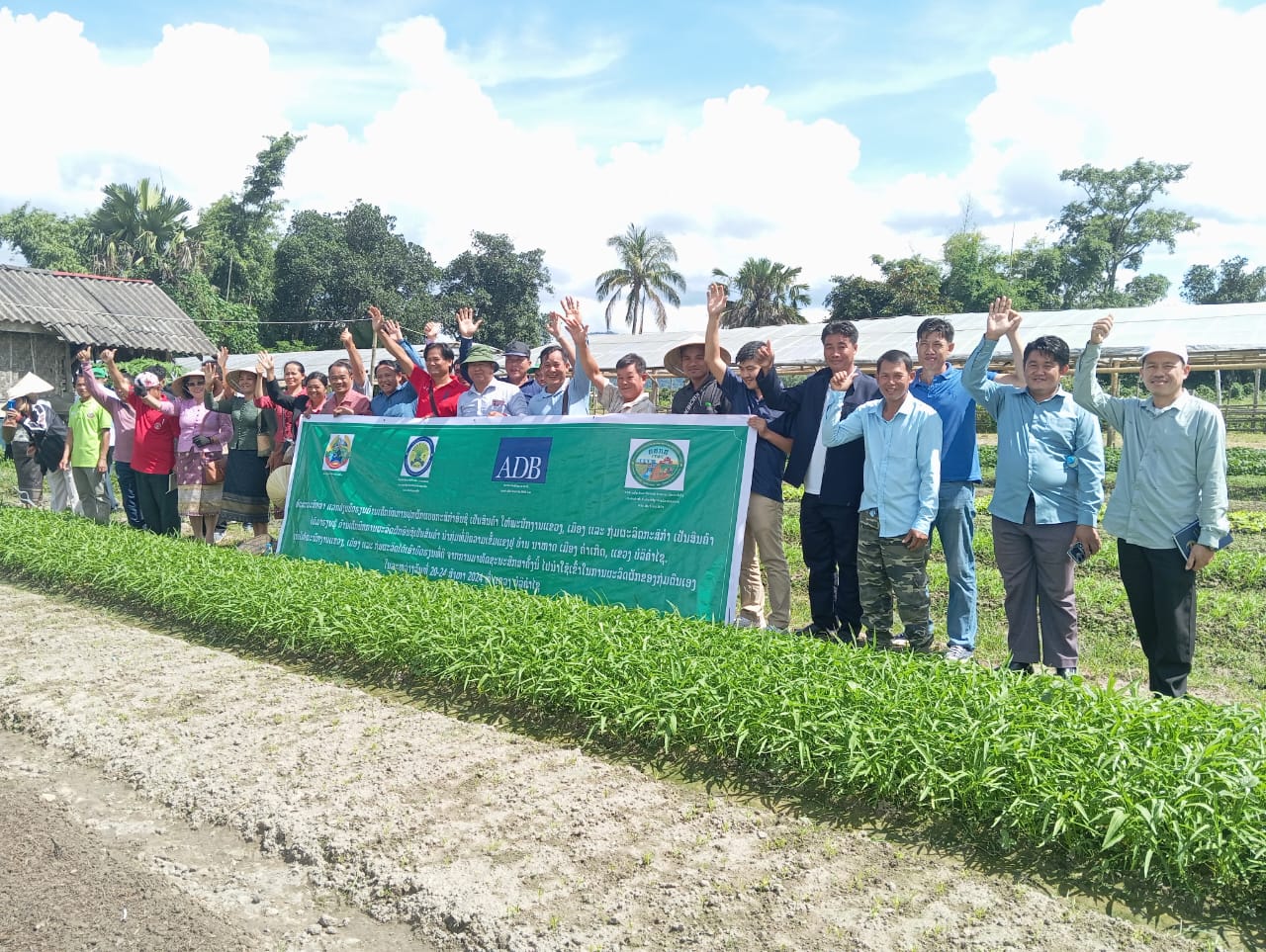

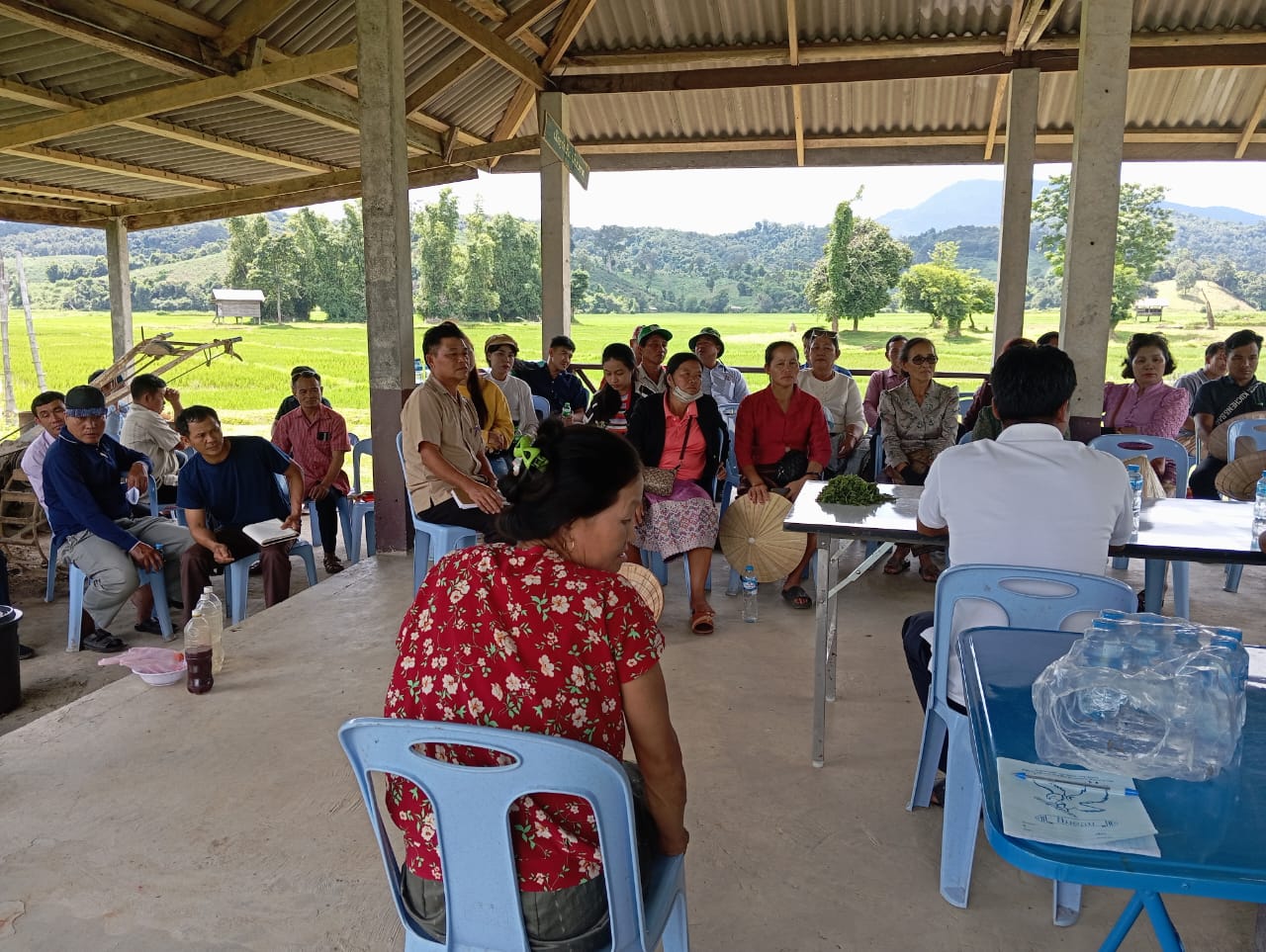
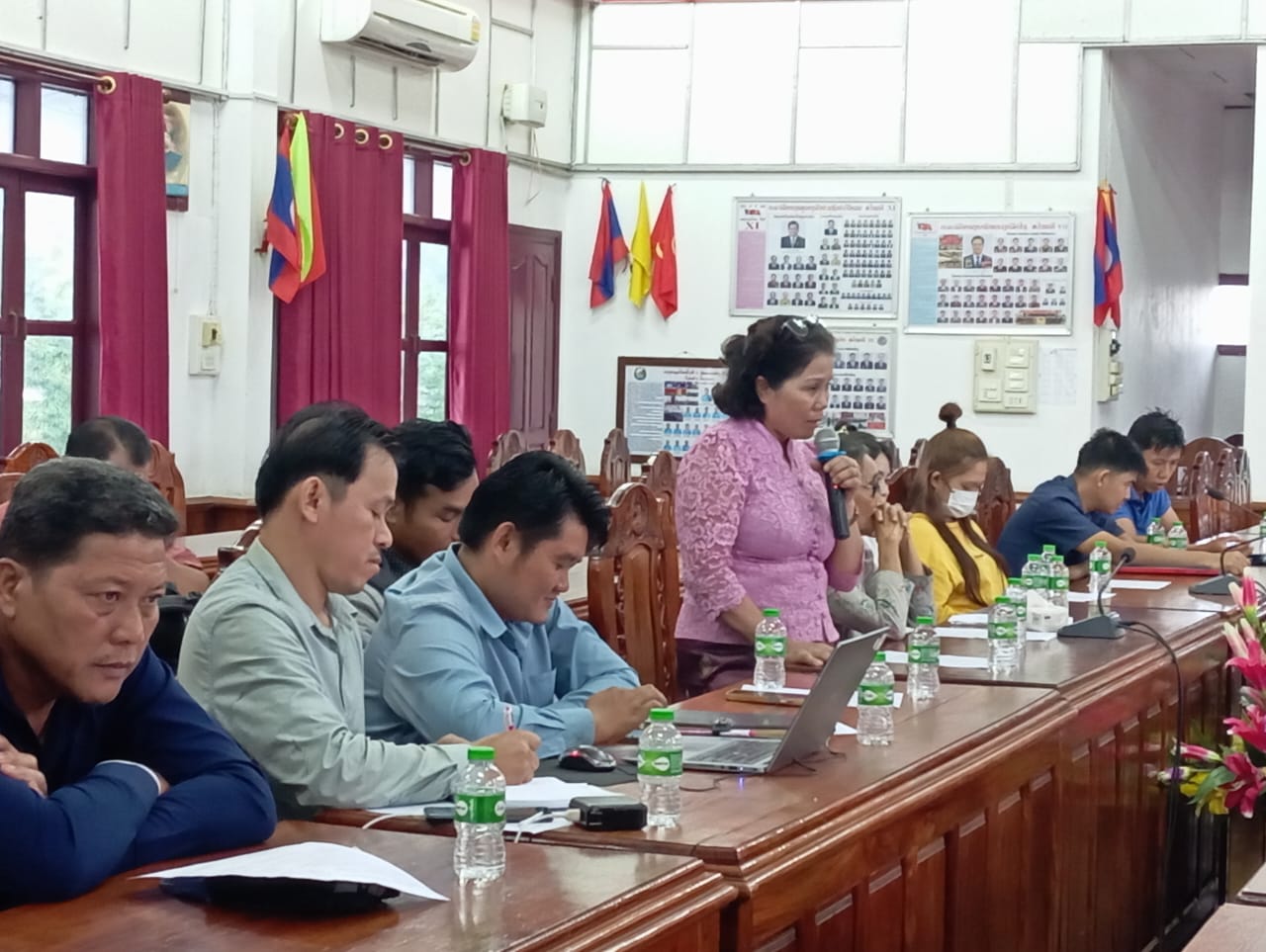
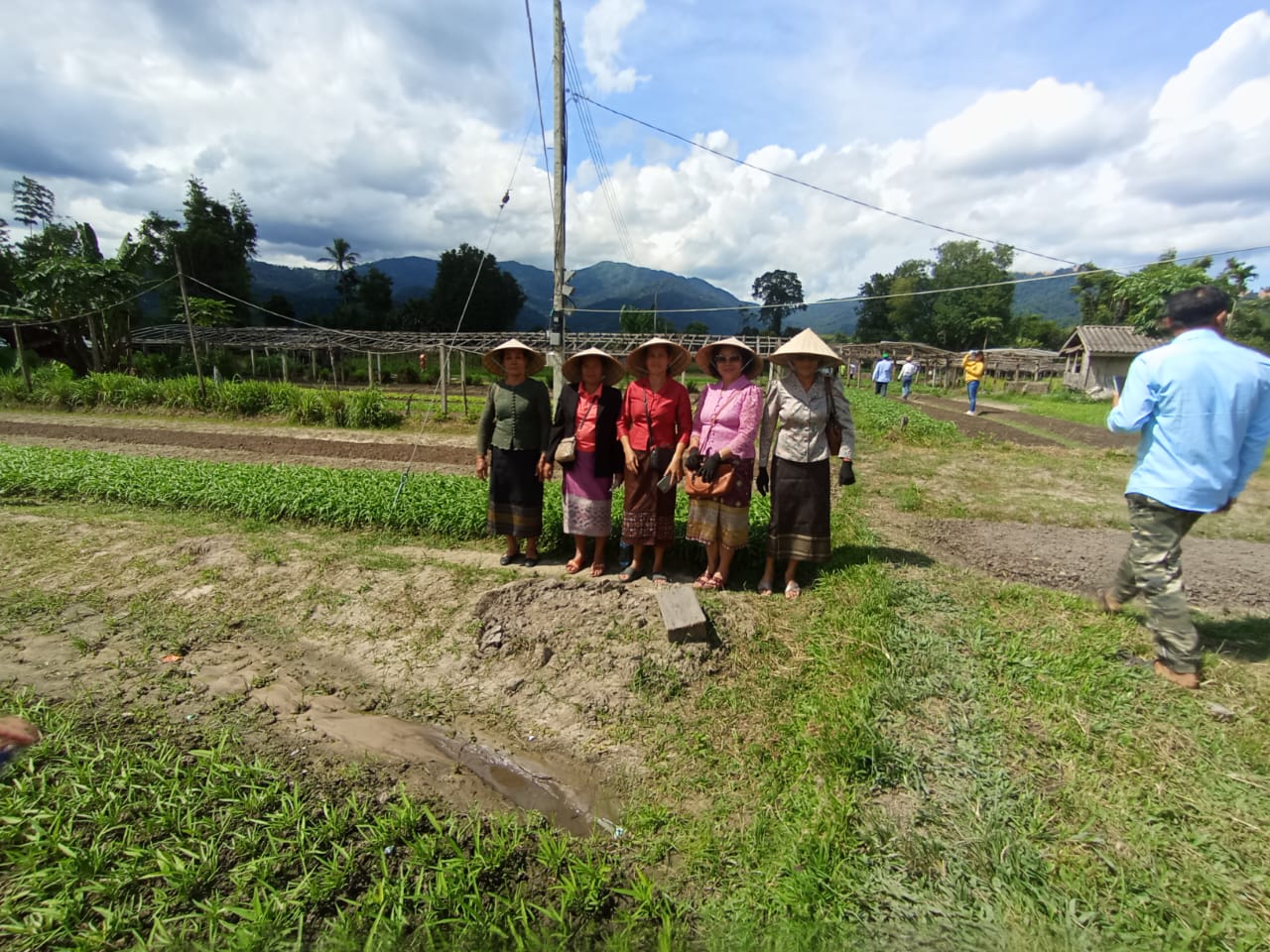
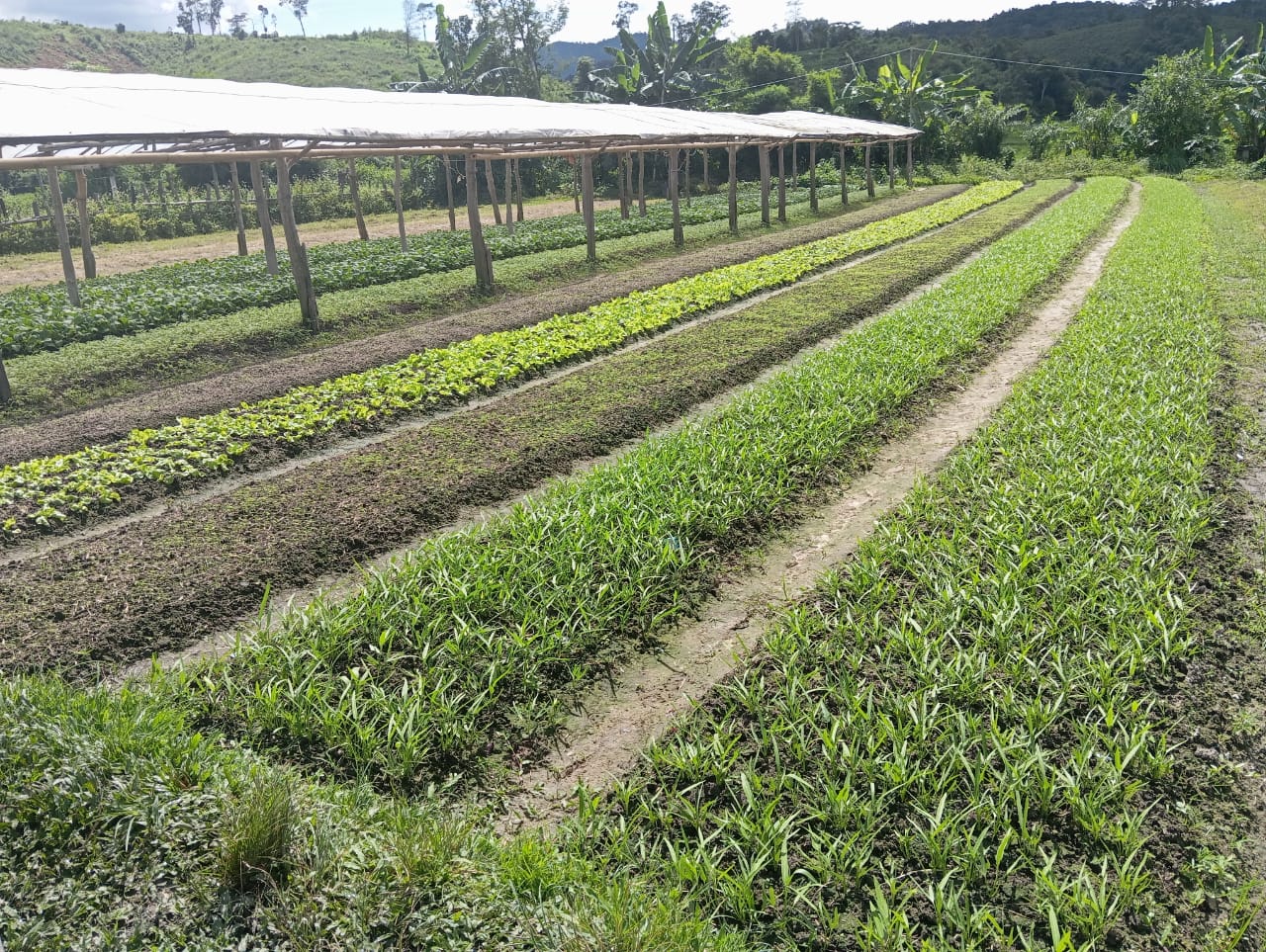
Between June 23 and July 5, 2024, the Climate-Friendly Agribusiness Value Chains (CFAVC) Project conducted a comprehensive monitoring and evaluation mission, spearheaded by the Asian Development Bank (ADB). This mission included site visits to key project areas in Savannakhet, Sekong, and Champasak provinces, where agricultural production groups, rice mills, roads, ponds, and irrigation systems were assessed.
The mission’s primary objective was to evaluate the progress and effectiveness of the project during the first half of 2024. The evaluation process was attended by representatives from the ADB, the Department of Agricultural Extension and Cooperatives, the Department of Irrigation, the Department of Agricultural Land Management and Development, the Department of Agriculture, the National Agricultural Forestry Research Institute and Rural Development, the Department of Planning and Finance, as well as provincial and district authorities, and farmers from the targeted project areas.
The findings from this evaluation will play a crucial role in shaping the future direction of the CFAVC Project, ensuring that it continues to achieve its objectives of promoting sustainable agricultural practices and enhancing the livelihoods of farmers throughout the region
